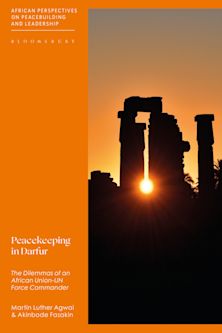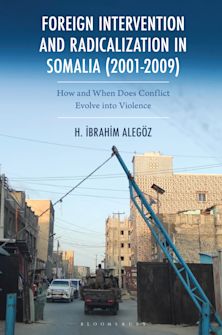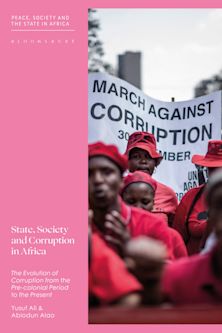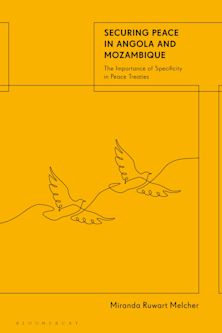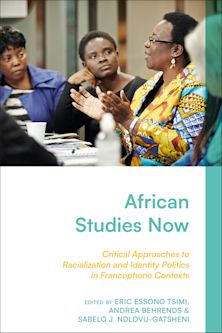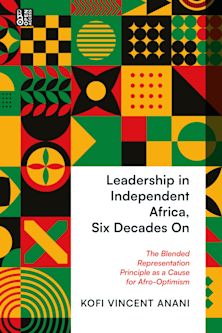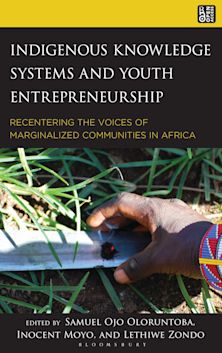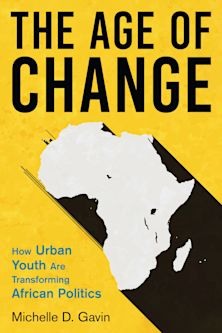Indigenous, Traditional, and Non-State Transitional Justice in Southern Africa
Zimbabwe and Namibia
Indigenous, Traditional, and Non-State Transitional Justice in Southern Africa
Zimbabwe and Namibia
This product is usually dispatched within 3 days
- Delivery and returns info
-
Free CA delivery on orders $40 or over
Description
The book investigates the use of bottom-up, community based healing and peacebuilding approaches, focusing on their strengths and suggesting how they can be enhanced. The main contribution of the book is an ethnographic investigation of how post-conflict communities in parts of Southern Africa use their local resources to forge a future after mass violence. The way in which Namibia’s Herero and Zimbabwe’s Ndebele dealt with their respective genocides is a major contribution of the book.
The focus of the book is on two Southern African countries that never experienced institutionalized transitional justice as dispensed in post-apartheid South Africa via the famed Truth and Reconciliation Commission. We answer the question: how have communities healed and reconciled after the end of protracted violence and gross human rights abuses in Zimbabwe and Namibia? We depart from statetist, top-down, one-size fits all approaches to transitional justice and investigate bottom-up approaches.
Table of Contents
Everisto Benyera
Chapter 2: A Dozen Transitional Justice Realities and Some Preliminary Problematisation
Everisto Benyera
Chapter 3: The Case for Indigenous, Traditional and Non-State Transitional Justice
Everisto Benyera
Chapter 4: Construing Transitology in the Context(s) of Democratization, Transitional Justice and Decolonization in Africa: A Legal Anthropology Perspective
Tapiwa Warikandwa & Artwell Nhemachena
Chapter 5: Operation Murambatsvina, Transitional Justice & Discursive Representation in Zimbabwe
Umali Saidi
Chapter 6: ‘Healing the Dead’ in Matabeleland, Zimbabwe: Combining Tradition with Science to Restore Personhood after Massacres
Shari Eppel
Chapter 7: The Aftermath of Gukurahundi: Dealing with Wounds of the Genocide through Non-State Justice Processes in Bubi (Inyathi) and Nkayi Districts, Matabeleland North Province, Zimbabwe
Ruth Murambadoro and Chenai Matshaka
Chapter 8: Grassroots Mechanisms for Justice, Peace-building and Social Cohesion in Zimbabwe’s ‘New’ Farm Communities
Tom Tom and Clement Chipenda
Chapter 9: Young women in peacebuilding and development in Zimbabwe: The case of Zimbabwe Young Women’s Network for Peacebuilding in Mutoko
Patience Thauzeni and Torque Mude
Chapter 10: Stains on the Wall: Struggle to survive post genocide violence by Nama- Herero communities in Namibia
Tafirenyika Madziyauswa
Chapter 11: Uncharted Waters: Reparations through Indigenous Forms of Transitional Justice for Namibian Victims of a colonial Genocide
Christian Harris
Product details
| Published | Mar 04 2022 |
|---|---|
| Format | Paperback |
| Edition | 1st |
| Extent | 240 |
| ISBN | 9781498592840 |
| Imprint | Lexington Books |
| Dimensions | 220 x 153 mm |
| Publisher | Bloomsbury Publishing |
Reviews

ONLINE RESOURCES
Bloomsbury Collections
This book is available on Bloomsbury Collections where your library has access.












